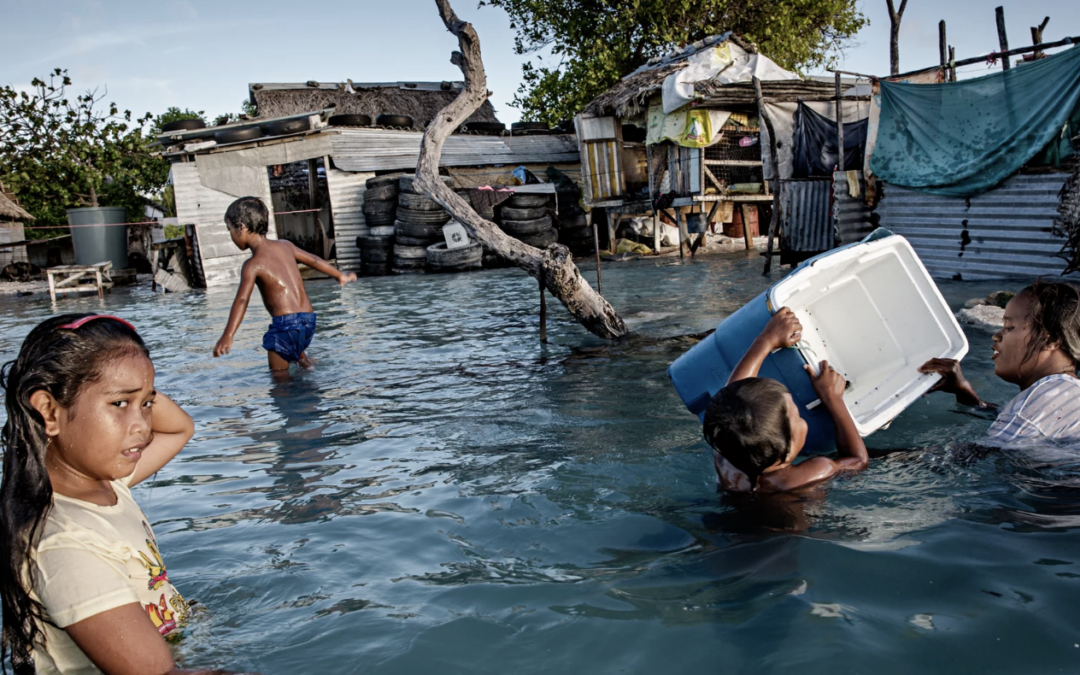Every day vulnerable people are forcibly displaced due to impacts generated by climate change. This isn’t something that will happen, this is something happening now.
As reported by the Environmental Justice Foundation in its 2021 report, No Shelter From the Storm, the climate crisis is exacerbating existing vulnerabilities and global inequalities: as the planet continues to heat, more people will be forced to flee their homes.
The displacement impacts of the climate crisis can already be seen today. Since 2008, weather-related hazards – which are increasing in frequency and severity as a result of the climate crisis – have displaced over 21 million people each year on average, equivalent to 41 people every minute. This figure does not include those forced to leave home due to slow-onset climate impacts, such as desertification and sea level rise. Most of the world’s climate refugees come from vulnerable communities in lower-income countries, where environmental degradation and climate change intersects with and exacerbates other stressors such as poverty, oppression, and conflict.
Climate refugees are already being forced from their homes today, from farmers in Bangladesh losing their livelihoods to communities such as the ones in California and Turkey losing their homes to extreme wildfires. Communities in all countries will be impacted: the climate crisis is a universal challenge, and we all have a common shared interest to act with far greater urgency and ambition now to avert the worst impacts of climate breakdown.
The current international protection regime does not meet the needs of climate refugees. There remains a deficit of adequate legal and policy frameworks governing climate-induced displacement at the international level. We refer to a ‘protection gap’ to describe the lack of satisfactory measures addressing the various adaptation, disaster risk reduction, humanitarian assistance and legal protection needs of climate refugees. As the climate crisis intensifies, this gap will present a growing humanitarian crisis and risk the erosion of human rights achievements and the failure of the Sustainable Development Goals agenda across the world.

